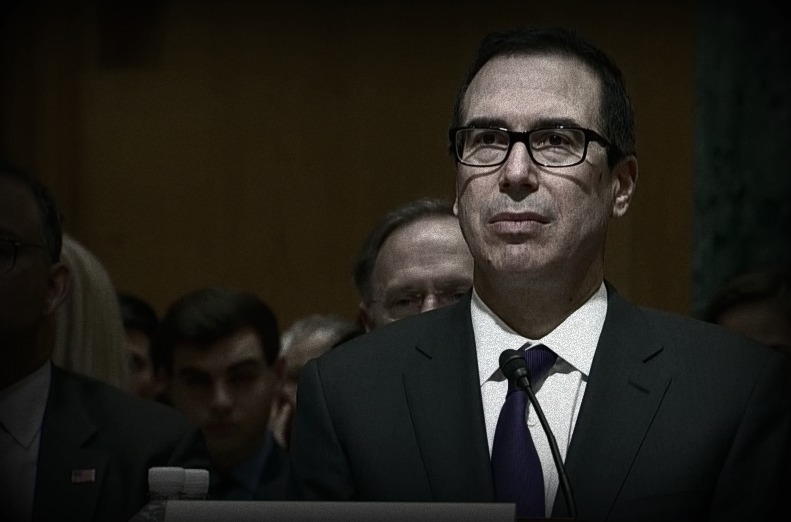Republicans have been trumpeting anecdotes of company bonuses as proof positive that corporate tax cuts are working for all Americans, not just the rich. Government economic data, however, show otherwise at this juncture.
The Bureau of Labor Statistics said Wednesday that real average wages were down 0.2 percent on a monthly basis in January. The drop was more pronounced down the line for “production and nonsupervisory employees,” who saw weekly earnings fall by 0.5 percent.
For all workers, inflation wiped out nominal wage increases, the agency said in a press release. Average real pay is now what it was in November 2017, the month before President Trump signed into law landmark tax cuts.
Testifying the same day before the Senate Finance Committee, Treasury Secretary Steve Mnuchin had an excuse: payroll tax deductions haven’t yet been implemented, and they should take effect later this month.
But Mnuchin also defended the widespread use of corporate tax breaks to fund stock repurchases—when a firm uses its own money to buy its own stock, boosting short-term market prices, dividends and executive compensation.
Ron Wyden (D-Ore.) had said executives have spent $100 billion post-tax reform on stock buybacks while forking over $5 billion on worker bonuses, according to press releases being touted by Republican lawmakers. Bob Casey (D-Penn.) cited an analysis from Bloomberg Intelligence, which predicted repurchases stemming from tax reform could eventually rise to $875 billion.
Mnuchin replied claiming that money financing stock repurchases is “recycled back into the economy.” The Treasury Secretary had made the same defense earlier in the hearing, offering a new take on “trickle down” economics used to justify gaping wealth and income inequality.
“Stock buybacks have been referenced here as though they were a terrible thing and just benefited really rich people,” said Mike Crapo (R-Idaho).
A little more than half of American families own stock in some way, the Associated Press noted last week.
“We’re doing whatever we can to encourage that number to go up,” Mnuchin told Crapo, referencing the statistic.
Within the stock market, however–as with every other aspect of the US economy—there is gaping inequality. In 2016, 84 percent of all equity was owned by the richest 10 percent of Americans.








